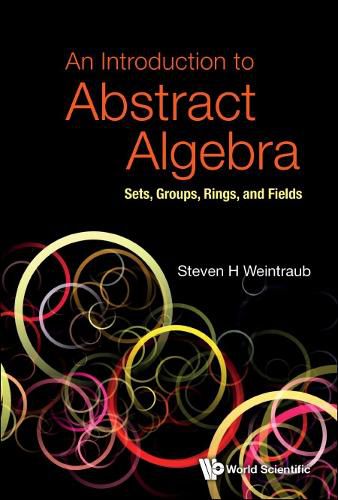Readings Newsletter
Become a Readings Member to make your shopping experience even easier.
Sign in or sign up for free!
You’re not far away from qualifying for FREE standard shipping within Australia
You’ve qualified for FREE standard shipping within Australia
The cart is loading…






This title is printed to order. This book may have been self-published. If so, we cannot guarantee the quality of the content. In the main most books will have gone through the editing process however some may not. We therefore suggest that you be aware of this before ordering this book. If in doubt check either the author or publisher’s details as we are unable to accept any returns unless they are faulty. Please contact us if you have any questions.
This book is a textbook for a semester-long or year-long introductory course in abstract algebra at the upper undergraduate or beginning graduate level.It treats set theory, group theory, ring and ideal theory, and field theory (including Galois theory), and culminates with a treatment of Dedekind rings, including rings of algebraic integers.In addition to treating standard topics, it contains material not often dealt with in books at this level. It provides a fresh perspective on the subjects it covers, with, in particular, distinctive treatments of factorization theory in integral domains and of Galois theory.As an introduction, it presupposes no prior knowledge of abstract algebra, but provides a well-motivated, clear, and rigorous treatment of the subject, illustrated by many examples. Written with an eye toward number theory, it contains numerous applications to number theory (including proofs of Fermat’s theorem on sums of two squares and of the Law of Quadratic Reciprocity) and serves as an excellent basis for further study in algebra in general and number theory in particular.Each of its chapters concludes with a variety of exercises ranging from the straightforward to the challenging in order to reinforce students’ knowledge of the subject. Some of these are particular examples that illustrate the theory while others are general results that develop the theory further.
$9.00 standard shipping within Australia
FREE standard shipping within Australia for orders over $100.00
Express & International shipping calculated at checkout
This title is printed to order. This book may have been self-published. If so, we cannot guarantee the quality of the content. In the main most books will have gone through the editing process however some may not. We therefore suggest that you be aware of this before ordering this book. If in doubt check either the author or publisher’s details as we are unable to accept any returns unless they are faulty. Please contact us if you have any questions.
This book is a textbook for a semester-long or year-long introductory course in abstract algebra at the upper undergraduate or beginning graduate level.It treats set theory, group theory, ring and ideal theory, and field theory (including Galois theory), and culminates with a treatment of Dedekind rings, including rings of algebraic integers.In addition to treating standard topics, it contains material not often dealt with in books at this level. It provides a fresh perspective on the subjects it covers, with, in particular, distinctive treatments of factorization theory in integral domains and of Galois theory.As an introduction, it presupposes no prior knowledge of abstract algebra, but provides a well-motivated, clear, and rigorous treatment of the subject, illustrated by many examples. Written with an eye toward number theory, it contains numerous applications to number theory (including proofs of Fermat’s theorem on sums of two squares and of the Law of Quadratic Reciprocity) and serves as an excellent basis for further study in algebra in general and number theory in particular.Each of its chapters concludes with a variety of exercises ranging from the straightforward to the challenging in order to reinforce students’ knowledge of the subject. Some of these are particular examples that illustrate the theory while others are general results that develop the theory further.